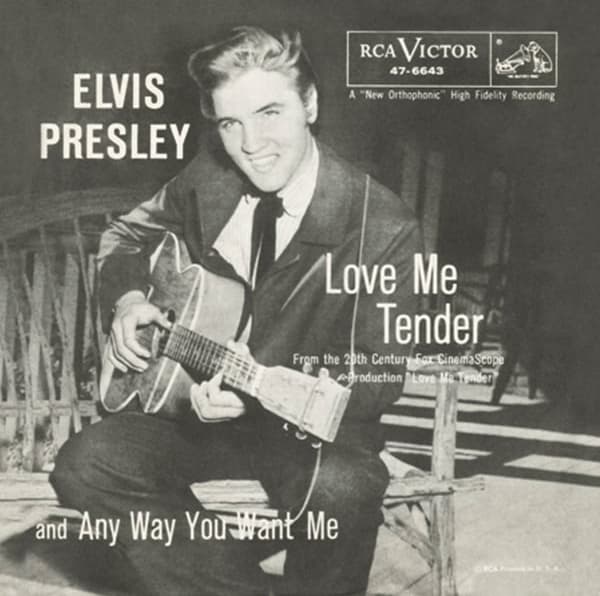
Elvis Presley – Love Me Tender: A Timeless Ode to Undying Affection
In the gentle strum of a guitar and the tender timbre of Elvis Presley’s voice, Love Me Tender softly unfolds like a cherished memory, capturing the essence of enduring love. Released in 1956, this classic ballad quickly became emblematic of the tender side of rock and roll’s first true superstar. As it debuted, it soared to the top of the charts, securing the number one position on the Billboard and Cash Box charts, a testament to its immediate impact and lasting resonance.
The song’s origins are as heartfelt as its lyrics. Adapted from the Civil War ballad “Aura Lee,” Love Me Tender was brought to life with new lyrics by Ken Darby. The simplicity of its melody is matched by the purity of its words—a promise of unwavering devotion that transcends time. At a time when Elvis Presley was revolutionizing music with his dynamic performances and electrifying presence, this song showcased a different facet of his artistry—one that was introspective and deeply emotional.
The story behind Love Me Tender intertwines with Elvis’s own burgeoning career and personal life. The song was featured in his first film, also titled Love Me Tender, marking his debut in Hollywood and expanding his influence beyond music into the realm of cinema. The film itself was a Western drama where Elvis played Clint Reno, a role that further endeared him to audiences who saw in him not just an icon but a relatable figure capable of conveying sincere emotion.
Lyrically, Love Me Tender speaks directly to the heart. Its verses are a gentle plea for affection and reassurance—a sentiment universally understood and eternally relevant. The song captures the longing for connection and the comfort found in a beloved’s embrace. For listeners who remember gathering around radios or watching Elvis on early television broadcasts, hearing this song again can evoke powerful memories of youth, first loves, and simpler times when music was a shared experience that brought people together.
To truly appreciate Love Me Tender, one must consider its broader cultural impact during the 1950s—a decade marked by post-war optimism and significant social change. Elvis’s music became a soundtrack for this era, reflecting both its innocence and its burgeoning desire for freedom and expression. In contrast to his more upbeat hits like “Hound Dog” or “Jailhouse Rock,” Love Me Tender revealed a vulnerability that resonated deeply with fans across generations.
For many older listeners today, revisiting Love Me Tender is akin to leafing through an old photo album—each note and lyric stirs reminiscences of days gone by, evoking emotions as fresh now as they were then. The song remains a poignant reminder of the power of music to capture life’s most profound moments—those filled with love, hope, and an unyielding sense of connection.
In reflecting on Elvis Presley’s legacy, Love Me Tender stands out not only as a beloved classic but as an enduring tribute to love itself—a theme as timeless as the King of Rock ‘n’ Roll himself.